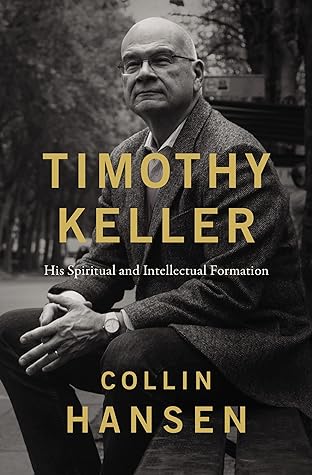More on this book
Community
Kindle Notes & Highlights
Read between
May 21 - May 21, 2023
“The best way I can put it is that, before the change, I pored over the Bible, questioning and analyzing it. But after the change it was as if the Bible, or maybe Someone through the Bible, began poring over me, questioning and analyzing me.”
Thanks to fantasy stories, readers can find existential satisfaction before they discover intellectual credibility. They can want something to be true even if they can’t yet bring themselves to believe it’s true. The writer can show the world as it ought to be, as it once was, and how it will be again someday. The writer can usher us into a world even better than what we can now imagine. For Tolkien, as for Keller, that’s the seed of Christian belief.
Keller found that preaching fails to connect when it’s not answering questions.
Edmund Clowney died on March 20, 2005. Writing three years later, Keller remembered his only personal mentor for teaching him that “it was possible to be theologically sound and completely orthodox and yet unfailingly gracious—a rare and precious combination.”39
Within three years of its first informal meeting, Redeemer Presbyterian Church launched Hope for New York in 1992 to mobilize funding and volunteers for organizations meeting physical needs of the city. If the church didn’t do this work, Keller warned, they would deserve the city’s scorn.32 The world isn’t accustomed to a church that cares just as much about expositional preaching as it does about justice for the poor. But at Redeemer, these goals would be theologically inseparable.33
A missional church will be more deeply and practically committed to deeds of compassion and social justice than traditional fundamentalist churches and more deeply and practically committed to evangelism and conversion than traditional liberal churches. This kind of church is profoundly counterintuitive to American observers, who are no longer able to categorize (and dismiss) it as liberal or conservative. Only this kind of church has any chance in the non-Christian West.
Keller learned from Lloyd-Jones never to assume everyone is a Christian, and never assume Christians no longer need the gospel.
Apologetics, then, has a dual focus: to keep an eye on our hope and remain true to it, and to keep an eye on what speaks to your listener, what connects with him or her at the level of desire (without manipulation). The job of apologetics is to build a bridge between hope and the non-Christian.
For Newbigin, the post-Christian West is the most resistant, challenging missionary frontier of all time.
“So the question becomes,” Kathy asked, “does the church want to be effective in changing hearts and making disciples, as Jesus commanded, or are we going to be content with preaching only to the already converted who agree with one another on the particular way they think gospel translates into social policy?”


